Max – Ultimate Python Bootcamp (for Beginners) ft. Interactive Game Development | Available Now !
$197.00 Original price was: $197.00.$56.00Current price is: $56.00.
Max – Ultimate Python Bootcamp (for Beginners) ft. Interactive Game Development | INSTANTLY DOWNLOAD !
PLEASE CHECK ALL CONTENTS HERE:
Archive: https://archive.fo/Xauk1
Sure, Data Science skills are in-demand,
but knowing which skills to have and how to learn them can be quite the challenge.
You may just be starting out and already feeling overwhelmed with where to start, especially because everything you’re finding seems confusing and unstructured.
Maybe you’ve even tried teaching yourself some Data Science through Youtube and random blogs posts, but you haven’t come as far as you would’ve liked.
What’s going wrong?
It seems like everyone wants to hire a Data Scientist, and yet, when you look at the requirements on job listings, you still feel like all of these jobs are so far out of your reach.
There seems to be an endless list of requirements to qualify for a full-time data scientist role.
Even if you did manage to learn all of these skills, you may still lack the required experience and practice on real data projects.
I know exactly how that feels – I’ve been there, I spent 5 years:
- Figuring out which skills I actually needed to land Data Science roles,
- honing my Data Science skills and strategies properly, and
- gathering enough experience to be able to answer any and every question an interviewer could throw my way
and now… I’m working as a full-time Data Scientist.
I tackle new Data Science problems everyday in my role, and continuously get messages from recruiters because I’ve finally developed all the skills that professional Data Science roles require.
Picture being able to…
- Automate your work to create analyses and visualizations with the single click of button
- Create amazing visualizations, being able to clearly and effectively analyze and communicate what the data is showing
- Perform out-of-this-world analysis, and deliver valuable, actionable insights to stakeholders
- Grab data from anywhere on the internet and get insights that others just don’t have access to
So what’s holding you back?
These skills are easily attainable when taught in an efficient and structured way with the help of practical and real-life data problems for you to master your skills with.
Over the last 5 years I’ve seen precisely why Data Science skills are so in-demand
and why everyone wants a Data Scientist on their team.
Let me show you through an example of why this is, and relate this to why having Data Science skills so significantly benefits you and your career.
Let’s take an Average Joe at an office job.
These are his skill sets, and the skill sets of all of his coworkers:
- Microsoft Office
- Knowledge of sales
- Has experience giving presentations and with public speaking
Joe’s average day looks like this:
- 8:55 – He gets into work
- 9:15 – He has a meeting with the team – they have a client they want to get hired by, and it’s Joe’s job to create the sales presentation deck
- 10:30 – Joe spends hours browsing the company’s online presences and reports to see what their values are; he finds figures and numbers in online articles that give relevant estimates for Joe to add into the sales deck
- 17:00 – He fills the presentation with what their team can do for them, and why they would benefit hiring the team Joe is on.
The problem with Joe is not that he’s unskilled, but rather that the sales deck that he’ll create will look just like those submitted to the same client from other teams.
It doesn’t stand out, and there’s nothing special about it.
Why? Because Joe is limited by what he is able to do, the data that he has access to, and the amount of analysis he is able to manually run and output by himself.
Imagine instead, Joe could utilize the powers of programming and data science to do the following…
- Automatically pull data on their clients’ social accounts and compare them to their competitors
- Generate reports on what months their desired client’s website got a lot of traffic, and see if he can find connections to anything obvious that they did
- Analyze the results and create some clean and straightforward visualizations to help illustrate what he found
- Present a sales deck that includes personalized analysis and an actionable plan of exactly how Joe’s team will benefit them; all of this backed by concrete data and thorough analyses done by Joe
Joe’s slide deck is now top of the pile.
But notice: the new and improved Joe didn’t ignore or forget his previous skills, he just does it better and faster now, using data to back up his claims and drive new strategies, making him far more valuable and useful for producing quality, valuable and solid recommendations.
To summarize the benefits of having Data Science skills in one sentence….
Data Science skills help you do more, and help you do it better.
If Joe now has to create another sales deck next week for a new client, all he has to do is…
- 1 – Grab new data
- 2 – Click run on his program to perform the same analysis process that he did last week
Not only is Joe doing a better job than his competitors, providing more value through his newfound skills, but he’s also made his life easier by automating his work.
“How can I learn how to do this?”
That’s the first question that I asked myself after I found out about the mysterious concept of “Data Science”.

I tried teaching myself the different strategies, concepts, methods using free online resources – it worked, yes.
But… it was also so time-consuming… and it was stressful because nobody gave me a simple path to learning everything I needed to. Everyone gave me bits and pieces of a huge Data Science puzzle that took me years to piece together on my own.

I tried to practice using exercises I found online, but the problems were too simplified.
They weren’t realistic for what a Data Scientist actually has to do in their job.
So for this course, I created a simple, straight-forward 10 week program that takes a total beginner to a data scientist in the shortest amount of time possible, learning everything that you would need for a professional data science job.
I created exercises that become increasingly challenging and are completely realistic to prepare you for the work that you’d actually have to do at a real Data Scientist role.
Commit to 10 weeks of learning exactly what you need, without wasting time googling or worrying about not covering all the right techniques to land a data science role.
P.S. Did I mention your commitment would be less than 5 hours per week?
I created Data Scientist in 10 Weeks because I understand how long it takes to learn Data Science correctly, and I honestly think everyone can benefit from having Data Science skills.
When I first started 5 years ago, this is what my internet browser looked like on a regular basis:
I went through every blog and every Youtube video trying to find out what I needed to learn to become a Data Scientist, and then I tried to teach myself.
I spent a LOT of time watching videos that taught me nothing, reading different blog posts that just repeated the same basic content. Wasting all that time trying to find the right resources and never learning anything useful.
Ultimately, I just started doing my own projects. I googled every little problem I came across – and trust me, there were many – and progress was slow, but at least there was progress.
After almost 3 years of practice I finally pieced together enough knowledge and had learnt enough to qualify myself for Data Science positions.
Once I got my first job, I started learning even more, because of all of my practical, real data science projects.
The point I’m making is:
I understand how difficult it is to learn Data Science, and how most of the content out there is just a repeat of the same, simple, basic information.
Data Scientist in 10 Weeks is based on the journey I went through, providing all the information you’ll need to start qualifying for Data Science positions.
It’s organized in a way that’s easy to follow and includes a lot of practical exercises with sample solutions, that become increasingly challenging, so that you’re actually solving problems that Data Scientists do every day.
So who is this course for?
THE COLLEGE GRAD
You’ve graduated but… what now? Reading through the descriptions and requirements of the jobs or internships you’re interested in… you feel like you’re not qualified for any of this. How are you supposed to get practical experience? After completing Data Scientist in 10 Weeks, you will meet those requirements, so why not spend the summer after graduation becoming qualified for the job you want to start in the fall?
THE EMPLOYEE
You enjoy what you’re doing and you’re good at your job, but it’s difficult to set yourself apart. You’ve gathered up valuable experience and have had some great projects, yet you still find it difficult to show your boss that you deserve that promotion, since your coworkers have also been working hard. Data Science skills will catapult you ahead. It only takes 10 weeks to make yourself stand out, and you can start applying what you’ve learnt as early as Week 1 after starting the course.
THE FOUNDER
You’ve got your own thing going, great job! You want to be able to better use and understand your data though. You don’t really get which campaigns are the most successful and you can’t follow your user journey. Data Science skills help you find and plug the leaks in your business, and point out which parts of your product/service are great and which parts need improvements.
Data Scientist in 10 Weeks
has everything you need.
Stop worrying about researching or coming up with your own exercises, I’ve done all of that for you. All you need to do now is put in the time, learn, and practice.
Here’s everything you can expect to learn
in Data Scientist in 10 Weeks:

Python
1 – Learn how to program, starting from zero prior experience
2 – Build a complex and interactive game
3 – The programming skills to let you automate your work
4 – How to manage, process, analyze, and visualize data using Python
5 – Techniques on how to debug and mistakes to watch out for

Data Visualizations
1 – How to make many different types of visualizations
2 – How to customize your graphs to make them look better and display information clearly
3 – How to make heatmaps and animations of your visualizations
4 – Exercise sheets with sample solutions for you to practice what you’ve learnt and to check your results with how I would solve the same problem
5 – Tips on good practices to have to make great, informative visualizations

Data Analysis
1 – How to handle data with Python
2 – Analytical techniques and tools so that you can analyze your data in whatever way you want to
3 – Exercise sheets with simulated real world data so that you can solve practical tasks that are relevant to the professional world
4 – Sample solutions so that you can check your work and understand how I approach the same problem
5 – Tips on how to approach Data Science problems and how to best solve them

Plus: BONUS Material
1 – How to interact with an SQL database using Python
2 – Grabbing data from all sorts of website and creating and automating your own web crawlers
3 – What is an API and how to use them
4 – Interacting with a social media API to get social media data and gaining actionable insights from them
5 – Learning how to get data from anywhere on the internet so that you can get the data for the projects that you’re interested in
Still curious about what we’ll cover?
Below is the full course curriculum, so you can see everything that you’ll learn.
Course Content
1 review for Max – Ultimate Python Bootcamp (for Beginners) ft. Interactive Game Development | Available Now !
| 5 star | 100 | 100% |
| 4 star | 0% | |
| 3 star | 0% | |
| 2 star | 0% | |
| 1 star | 0% |
Sorry, no reviews match your current selections
Q & A
Related products
Ecommerce
Ecommerce
Ecommerce
Forex & Trading
Ecommerce
Ecommerce

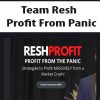
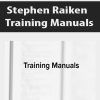
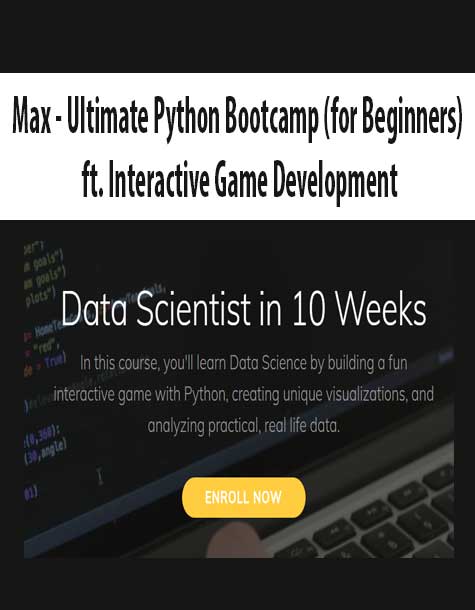
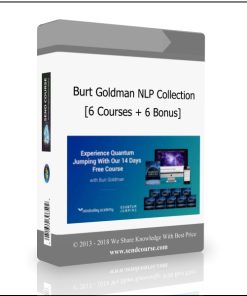




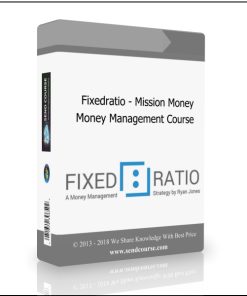
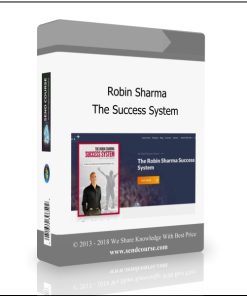

Smooth transaction. Thanks | Max – Ultimate Python Bootcamp (for Beginners) ft. Interactive Game Development